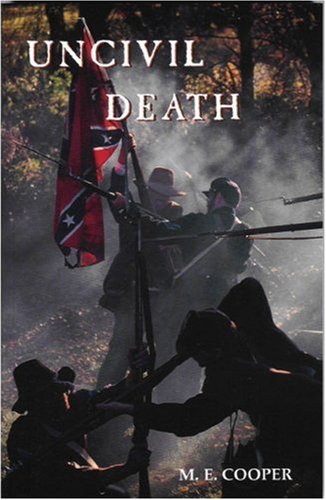Uncivil Death
Drowning in detail, the story lumbers forward as Lieutenant Conley, fictional aide to the historical Confederate General William Wing Loring, seeks to find the killer of a woman soldier. It is February 1862 and the Confederate army is bogged down in winter mud and cold outside of Winchester, Virginia. Pretending to be a man—as over 400 historically documented women did—the victim donned uniform, carried an Enfield, and marched beside her husband. But one night she strayed outside the picket lines and had her throat slashed.
A Civil War re-enactor, the author has filled this worthy first attempt with minutiae gleaned from sitting around numerous campfires. Historical detail overwhelms here: does the reader need to know the exact step-count of the “quick march”? One wishes to have known the victim a bit more. On the other hand, the characters of Conley, Loring, and others are deftly drawn. Cooper also commendably incorporates different accents and cadence in her dialect—no small feat. The ending is brief, the killer unknown until the very end. For period ambience the book succeeds. One can only hope that in its sequel Cooper will allow the story to emerge beyond the setting.










